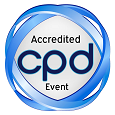
Jorge Costa Pereira
University of Coimbra, Portugal
Title: Unsupervised component analysis: How to retrieve independent contributions
Biography
Biography: Jorge Costa Pereira
Abstract
HPLC chromatography is a well-known standard instrumental analytical technique, widespread over all analytical labs around the world, very convenient to perform fast separation and simultaneous quantification of several analytes in several complex samples. Most convenient, reliable and roust detectors are usually related with UV-Vis detection. However, while analyzing real and complex samples, it is frequent to observe signal distortions related with analytes co-elution, spectral interference and column lack of selectivity. Is it possible to be aware of these situations and circumvent these problems? In a recent study we suggested how to retrieve independent component contributions in spectroscopic (synchronous fluorescence) analysis of environmental samples. In this work, independent component analysis (ICA) was used in order to retrieve spectral sources and respective component contributions. However, in order to preform ICA, it was necessary to previously determine the number of independent components responsible for data spectra. Using principal object analysis (POA) we showed how it is possible to find out system independent contributions in a robust and reliable manner. With this same concept we believe it is possible to determine: 1) independent contributions, 2) their specific chromatogram, and 3) respective contributions using same approach, especially when there are evidences for co-elution profiles in (UV/Vis)-HPLC and other non-specific instrumental methods. Some examples, practical and theoretical considerations will be addressed in order to maximize the ability of unsupervised component analysis (UCA) to evaluate chromatographic response in complex systems.

